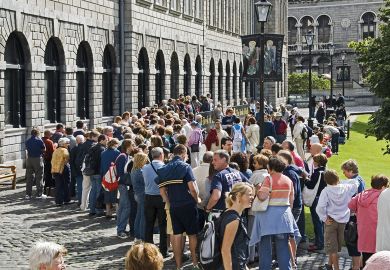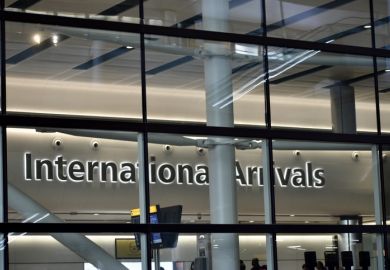Belarusian universities have expelled more than 150 students for taking part in protests against the regime, according to Amnesty International, in an “unprecedented” wave of persecution by the country’s institutions.
Students and academics have become a key part of the opposition to president Alexander Lukashenko, who has ruled the country since 1994, since protests flared after last August’s disputed election, widely seen as rigged.
But early on in the protests, some university bosses, appointed directly by Mr Lukashenko, appeared to try to silence dissent by imposing new rules on campus protest and in one case firing an opposition lecturer.
Since then, according to Amnesty International, Belarusian universities have “arbitrarily” expelled 153 students for political activities.
This tactic has been used to muzzle dissent for decades. “But the scale of harassment, persecution and violence against them is unprecedented since Belarus’ 1991 independence,” the body says in a new report.
It details the case of Anastasia Bulibenka, a 19-year-old second-year student at Belarusian National Technical University, who was expelled in late autumn for her activism and told by the university rector several times that she was “under observation”.
Along with 11 other student activists, her home was raided in November 2020 and she now faces up to three years in prison. The report details several other cases of students and lecturers forced out for taking part in protests.
The Belarusian National Technical University did not respond to a request for comment. Belarus’ Ministry of Education also did not immediately reply.
University expulsion is only one aspect of the persecution meted out to opposition students in Belarus, Amnesty International says.
As of mid-May, 466 students have been detained, according to the Belarusian Students’ Association, with some facing periods of detention and heavy fines, beatings and torture from police, while six have been sentenced to stretches of jail time.
In response to the repression, a trio of international academic organisations have called for an end to the “criminalisation of students and academics in Belarus”.
The European University Association, European Students’ Union, and Scholars at Risk say that there is a “growing number of university members who have been detained, expelled from their institutions, and punished with exorbitant fines simply for participating in the protests last autumn”.
Belarus has since 2015 been part of the Bologna process, a long-running Europe-centred attempt to standardise and reform higher education, which includes commitments to academic freedom and freedom of expression.
As recently as November last year, ministers in participating countries made special commitments to academic freedom.
But at the same time, the UK and Germany singled out Belarus for condemnation. “The recent attacks, harassment, intimidation, detention, fines, arrest and expulsion of students and academic staff from higher education institutions are not acceptable nor negotiable,” they said.




